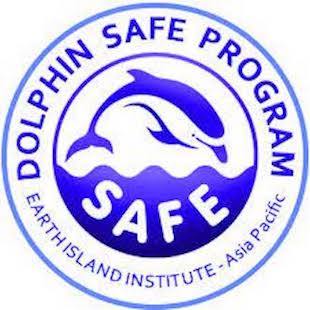Is it? The Earth Island Institute isn’t prepared to guarantee that no dolphins died for products bearing this label.
Creating the illusion that we’re doing it right
Poor seafood labeling laws can do a great deal of damage in that they create the illusion among the public that all is well. A destructive and entirely unaccountable fishing industry also welcomes the cover they provide. We need comprehensive, effective labeling laws and traceability.
The issue largely centers around ‘bycatch’. Consider that at present non-target species captured by fishing vessels amount to 38 million tonnes per year. Most of this, dead or dying, is discarded back into the sea. It’s estimated that as much as 40% of the fish we catch worldwide falls into this category. It’s a colossal waste that further strains marine ecosystems already under severe stress.
Many of these unintended victims are endangered species. For example, the WWF estimates that as many as 250,000 loggerhead and leatherback turtles are included in these totals. Add to that hundreds of thousands of sea birds of innumerable species. With practices such as ocean trawling, everything that lives in the sea is at risk, right down to sensitive corals. A deliberate environmental catastrophe that we choose to inflict on ourselves.
But it gets even worse. Among those dying in our nets are as many as 300,000 dolphins and small whales, every year. An agonizing and terrifying way to die for a being whose cognitive sophistication is roughly equivalent to yours or mine. This pushes the concept of bycatch beyond the realm of insanely destructive and impractical, and into that of the immoral and indefensible.
And here’s where weak, inadequate seafood labeling laws come in. None of us want even a single dolphin to perish so that we can have fish for dinner. Most of us are prepared to pay a little more for seafood that comes with a nice ‘dolphin friendly’ label on it. Many of us wouldn’t consider buying a can of fish that doesn’t have that on it. But what we don’t know is that the institutes that lend their names and their reputations to these labels freely admit that it’s difficult to impossible to monitor what goes on at sea.
Such labeling is worse than nothing at all, because it creates a false sense of security for consumers of seafood products. With seafood being the most globally traded commodity in the world, that’s a huge problem.
Consumers need to be sure of what they’re eating, how it was produced, and that it came from a certifiably sustainable fishery. Where was it caught or farmed matters. And no more generic labeling that can mislead as to what species is actually being consumed.
Here in Canada, our federal government has committed to introducing comprehensive boat-to-plate traceability, but we have a long way to go. It’s up to us, both as voters and consumers, to see that they follow through. The same is true wherever you happen to live in the world, and the stakes are high.
Sustainable fishing doesn’t just mean limiting the size of our catch to levels that our oceans will be able to replace, but also that we impact only those species we intend to eat. Our long-term need to respect and live in harmony with the ocean means that we need to eliminate bycatch altogether. And the only acceptable number of dolphins and small whales dying for our dinner is zero.
Until the government where you live is ready to improve seafood traceability and labeling, pleas skip the seafood aisle.
For The Orca’s Voice,
Your Canadian Cetacean Alliance Team



Leave a Reply